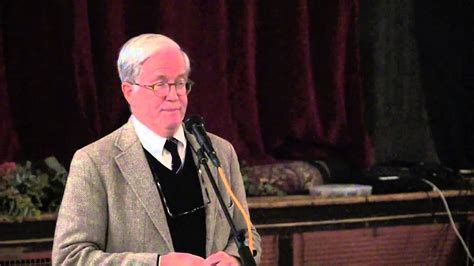A Quote by David Hume
Reasoning from the common course of nature, and without supposing any new interposition of the Supreme Cause, which ought always to be excluded from philosophy; what is incorruptible must also be ingenerable. The soul, therefore, if immortal, existed before our birth: And if the former existence noways concerned us, neither will the latter.
Related Quotes
And as this is the obvious appearance of things, it must be admitted, till some hypothesis be discovered, which by penetrating deeper into human nature, may prove the former affections to be nothing but modifications of the latter. All attempts of this kind have hitherto proved fruitless, and seem to have proceeded entirely from that love of simplicity which has been the source of much false reasoning in philosophy.
The progress of science has always been the result of a close interplay between our concepts of the universe and our observations on nature. The former can only evolve out of the latter and yet the latter is also conditioned greatly by the former. Thus in our exploration of nature, the interplay between our concepts and our observations may sometimes lead to totally unexpected aspects among already familiar phenomena.
The essences of the Gods never came into existence (for that which always is never comes into existence; and that exists for ever which possesses primary force and by nature suffers nothing): neither do they consist of bodies; for even in bodies the powers are incorporeal. Neither are they contained by space; for that is a property of bodies. Neither are they separate from the first cause nor from one another, just as thoughts are not separate from mind nor acts of knowledge from the soul.
Time, which measures everything in our idea, and is often deficient to our schemes, is to nature endless and as nothing; it cannot limit that by which alone it had existence; and as the natural course of time, which to us seems infinite, cannot be bounded by any operation that may have an end, the progress of things upon this globe, that is, the course of nature, cannot be limited by time, which must proceed in a continual succession.
Good-nature is that benevolent and amiable temper of mind which disposes us to feel the misfortunes and enjoy the happiness of others, and, consequently, pushes us on to promote the latter and prevent the former; and that without any abstract contemplation on the beauty of virtue, and without the allurements or terrors of religion.
What is the cause that one is hardened, and another readily moved to compunction? Listen! It springs from the will, in the latter case a good will, in the former an evil one. It springs also from the thoughts, in the former case evil thoughts, in the latter from the opposite; and similarly from actions, in the former case actions contrary to God, in the latter godly ones... it is by free choice of the will that every person either attains compunction and humility, or else becomes hard-hearted and proud.
One can delineate the domain of philosophy however one likes, but in its search for truth, philosophy is always concerned with human existence. Authentic philosophizing refuses to remain at the stage of knowledge […]. Care for human existence and its truth makes philosophy a 'practical science' in the deepest sense, and it also leads philosophy—and this is the crucial point—into the concrete distress of human existence.
Plain experience and common sense inform us that no abstract Person can have made us as we are without also wishing to delete us and start over (Gen. 8:21; Zeph. 1:2). Therefore, the existence of cruel and arbitrary nature, together with the universality of human sin, prevents us from beginning the theological enterprise with any concept of God that is distinct from revelation. All theologies of a cosmic harmonic principle shipwreck on the truths of tragedy, catastrophe, and injustice.
The difference between a man who is led by opinion or emotion and one who is led by reason. The former, whether he will or not, performs things of which he is entirely ignorant; the latter is subordinate to no one, and only does those things which he knows to be of primary importance in his life, and which on that account he desires the most; and therefore I call the former a slave, but the latter free.
Nothing can be plainer, than that the motions, changes, decays, and dissolutions, which we hourly see befall natural bodies (and which is what we mean by the course of nature), cannot possibly affect an active, simple, uncompounded substance: such a being therefore is indissoluble by the force of nature, that is to say, the soul of man is naturally immortal.
Man is made for science; he reasons from effects to causes, and from causes to effects; but he does not always reason without error. In reasoning, therefore, from appearances which are particular, care must be taken how we generalize; we should be cautious not to attribute to nature, laws which may perhaps be only of our own invention.
This must be our belief when we have a correct knowledge of our own self, and comprehend the true nature of everything; we must be content, and not trouble our mind with seeking a certain final cause for things that have none, or have no other final cause but their own existence, which depends on the Will of God, or, if you prefer, on the Divine Wisdom.
Discoveries are always accidental; and the great use of science is by investigating the nature of the effects produced by any process or contrivance, and of the causes by which they are brought about, to explain the operation and determine the precise value of every new invention. This fixes as it were the latitude and longitude of each discovery, and enables us to place it in that part of the map of human knowledge which it ought to occupy. It likewise enables us to use it in taking bearings and distances, and in shaping our course when we go in search of new discoveries.





































